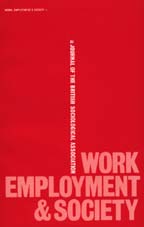Article contents
Women Science Graduates in Britain: the value of secondary analysis of large scale data sets
Published online by Cambridge University Press: 01 June 1999
Abstract
The majority of government, professional body and industry rhetoric on the issue of women and S & E (the term which we use throughout to cover the sciences and applied sciences) has been about the low numbers of girls becoming qualified in science and of women entering the sciences (Glover and Fielding 1999). Little attention has been paid to the issue of what happens to women once they enter science. In other words, ‘getting in’ has been seen as the issue; ‘staying on’ and ‘getting on’ have received much less attention. Government policy seeking to increase the representation of girls and women in scientific education and employment has been set out in a series of reports. These include the Dainton Report 1968; the Finniston Report 1980; Realising Our Potential 1993; The Rising Tide 1994 (resulting in the setting up of the Women in SET Development Unit in the Department of Trade & Industry); Forward Look 1996. The Equal Opportunities Commission has involved itself in interventionist campaigns which seek to persuade girls to become scientifically qualified (Smail and Whyte 1983). The engineering profession has also voiced its concern about the low numbers of women; the Engineering Council has funded a Women into Science and Engineering (WISE) unit since the mid 1980s.
- Type
- NOTES AND ISSUES
- Information
- Copyright
- 1999 BSA Publications Ltd
- 12
- Cited by




